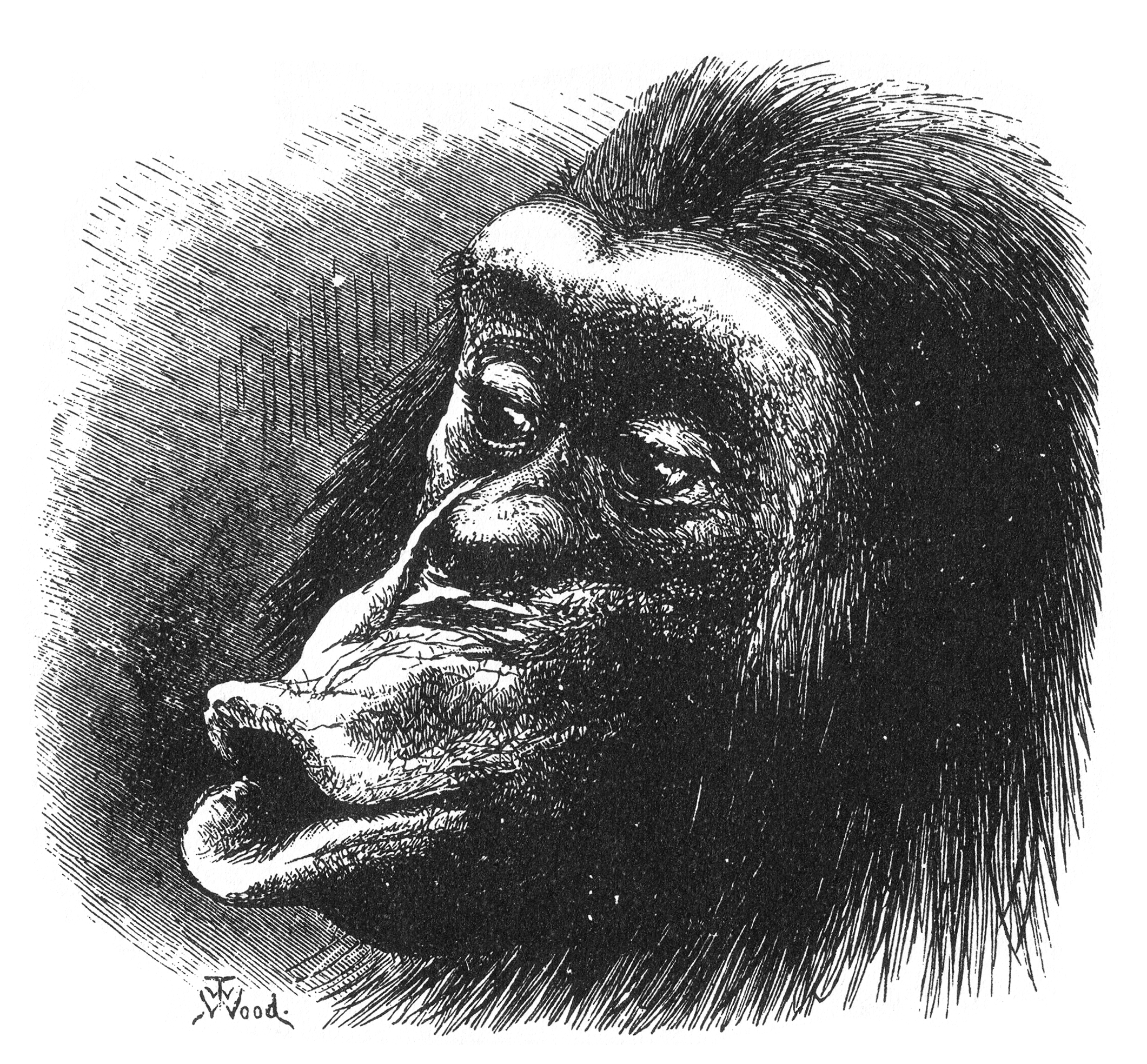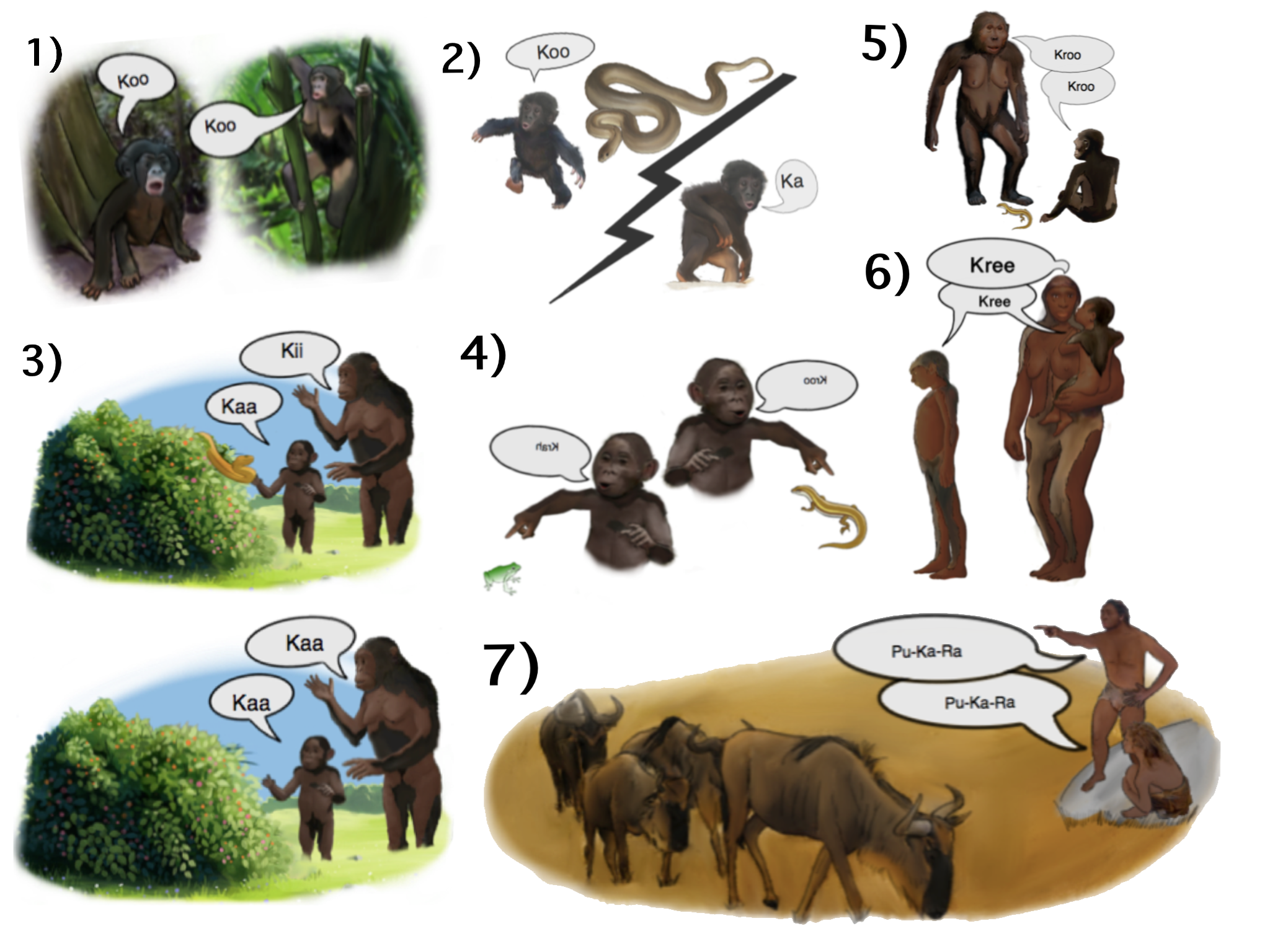|
Tecumseh Fitch
William Tecumseh Sherman Fitch III (born 1963)http://homepage.univie.ac.at/tecumseh.fitch/wp-content/uploads/2011/05/FitchCV2011.pdf is an American evolutionary biologist and cognitive scientist at the University of Vienna (Vienna, Austria) where he is co-founder of the Department of Cognitive Biology. Fitch studies the biology and evolution of cognition and communication in humans and other animals, and in particular the evolution of speech, language and music. His work concentrates on comparative approaches as advocated by Charles Darwin (i.e., the study of Homology (biology), homologous and Convergent evolution, analogous structures and processes in a wide range of species). Fitch was born in Boston and received his Bachelor of Arts, B.A. (1986) in biology and his Ph.D. (1994) in Cognitive and Linguistic Sciences from Brown University. From 1996 to 2000, he worked as a Postdoctoral fellow at MIT and Harvard University. He was a lecturer at Harvard University and a reader at the ... [...More Info...] [...Related Items...] OR: [Wikipedia] [Google] [Baidu] |
Boston
Boston (), officially the City of Boston, is the state capital and most populous city of the Commonwealth of Massachusetts, as well as the cultural and financial center of the New England region of the United States. It is the 24th- most populous city in the country. The city boundaries encompass an area of about and a population of 675,647 as of 2020. It is the seat of Suffolk County (although the county government was disbanded on July 1, 1999). The city is the economic and cultural anchor of a substantially larger metropolitan area known as Greater Boston, a metropolitan statistical area (MSA) home to a census-estimated 4.8 million people in 2016 and ranking as the tenth-largest MSA in the country. A broader combined statistical area (CSA), generally corresponding to the commuting area and including Providence, Rhode Island, is home to approximately 8.2 million people, making it the sixth most populous in the United States. Boston is one of the oldest ... [...More Info...] [...Related Items...] OR: [Wikipedia] [Google] [Baidu] |
Marc Hauser
Marc D. Hauser (born October 25, 1959) is an American evolutionary biologist and a researcher in primate behavior, animal cognition and human behavior and neuroscience. Hauser was a professor of psychology at Harvard University from 1998 to 2011. In 2010 Harvard found him guilty of research misconduct, specifically fabricating and falsifying data, after which he resigned. Because Hauser's research was financed by government grants, the Office of Research Integrity of the Health and Human Services Department also investigated, finding in 2012 that Hauser had fabricated data, manipulated experimental results, and published falsified findings.Johnson, C., 2012Former Harvard professor Marc Hauser fabricated, manipulated data, US says''Boston Globe'' nlineSeptember 5 ccessed September 12, 2012/ref> Research and publications Hauser's research topics include evolutionary biology, cognitive neuroscience, cognitive evolution, and language evolution. Hauser's internet-based 'The Mo ... [...More Info...] [...Related Items...] OR: [Wikipedia] [Google] [Baidu] |
Vocal Learning
Vocal learning is the ability to modify acoustic and syntactic sounds, acquire new sounds via imitation, and produce vocalizations. "Vocalizations" in this case refers only to sounds generated by the vocal organ (mammalian larynx or avian Syrinx (bird anatomy), syrinx) as opposed to by the lips, teeth, and tongue, which require substantially less motor control. A rare trait, vocal learning is a critical substrate for spoken language and has only been detected in eight animal groups despite the wide array of vocalizing species; these include humans, bats, cetaceans, pinnipeds (Pinniped, seals and sea lions), elephants, and three distantly related bird groups including songbirds, parrots, and hummingbirds. Vocal learning is distinct from auditory learning, or the ability to form memories of sounds heard, a relatively common trait which is present in all vertebrates tested. For example, dogs can be trained to understand the word "sit" even though the human word is not in its innate audi ... [...More Info...] [...Related Items...] OR: [Wikipedia] [Google] [Baidu] |
Origin Of Music
Although definitions of music vary wildly throughout the world, every known culture partakes in it, and it is thus considered a cultural universal. The origins of music remain highly contentious; commentators often relate it to the origin of language, with much disagreement surrounding whether music arose before, after or simultaneously with language. Many theories have been proposed by scholars from a wide range of disciplines, though none have achieved broad approval. Most cultures have their own mythical origins concerning the invention of music, generally rooted in their respective mythological, religious or philosophical beliefs. The music of prehistoric cultures is first firmly dated to BP of the Upper Paleolithic by evidence of bone flutes, though it remains unclear whether or not the actual origins lie in the earlier Middle Paleolithic period (300,000 to 50,000 BP). There is little known about prehistoric music, with traces mainly limited to some simple fl ... [...More Info...] [...Related Items...] OR: [Wikipedia] [Google] [Baidu] |
Origin Of Speech
The origin of speech refers to the general problem of the origin of language in the context of the physiological development of the human speech organs such as the tongue, lips, and vocal organs used to produce phonological units in all spoken languages. The origin of speech has been studied through many fields and topics such as: evolution, anatomy, and history of linguistics. The origin of speech is related to the more general problem of the origin of language, the evolution of distinctively human speech capacities has become a distinct and in many ways separate area of scientific research. The topic is a separate one because language is not necessarily spoken: it can equally be written or signed. Speech is in this sense optional, although it is the default modality for language. Background There are many different theories and ideas that give us a theoretical framework of how speech in humans originated. Multiple of these theories play on the idea of how humans evolved ... [...More Info...] [...Related Items...] OR: [Wikipedia] [Google] [Baidu] |
Origin Of Language
The origin of language (spoken and signed, as well as language-related technological systems such as writing), its relationship with human evolution, and its consequences have been subjects of study for centuries. Scholars wishing to study the origins of language must draw inferences from evidence such as the fossil record, archaeological evidence, contemporary language diversity, studies of language acquisition, and comparisons between human language and systems of communication existing among animals (particularly other primates). Many argue that the origins of language probably relate closely to the origins of modern human behavior, but there is little agreement about the facts and implications of this connection. The shortage of direct, empirical evidence has caused many scholars to regard the entire topic as unsuitable for serious study; in 1866, the Linguistic Society of Paris banned any existing or future debates on the subject, a prohibition which remained influen ... [...More Info...] [...Related Items...] OR: [Wikipedia] [Google] [Baidu] |
Hoover (seal)
Hoover ( – July 25, 1985) was a harbor seal who was able to imitate basic human speech. Cundy’s Harbor On May 5, 1971, Scottie Dunning discovered a tiny male harbor seal pup on the shore of Cundy's Harbor, Maine. After a failed attempt at locating the pup's mother, Dunning called his brother-in-law George Swallow for help. When Swallow arrived, the two searched for the mother seal and later found her dead among the rocks. After careful consideration, Swallow finally decided to take the seal pup home with him. At first, it refused to drink milk from a bottle, but once advice was given by a neighbor to grind up fish and offer it to the pup, he sucked it up like a hoover (vacuum cleaner), hence his name. The Swallows kept him in their bathtub, but this proved too inconvenient within a few days. So George moved him out back to a spring-fed pond where he set up a "pup tent" enclosed by a wire fence. Hoover lived very much like a family dog and even accompanied George riding ... [...More Info...] [...Related Items...] OR: [Wikipedia] [Google] [Baidu] |
Evolutionary Psychology
Evolutionary psychology is a theoretical approach in psychology that examines cognition and behavior from a modern evolutionary perspective. It seeks to identify human psychological adaptations with regards to the ancestral problems they evolved to solve. In this framework, psychological traits and mechanisms are either functional products of natural and sexual selection, non-adaptive by-products of other adaptive traits, or noise. Adaptationist thinking about physiological mechanisms, such as the heart, lungs, and the liver, is common in evolutionary biology. Evolutionary psychologists apply the same thinking in psychology, arguing that just as the heart evolved to pump blood, and the liver evolved to detoxify poisons, there is modularity of mind in that different psychological mechanisms evolved to solve different adaptive problems. These evolutionary psychologists argue that much of human behavior is the output of psychological adaptations that evolved to solve recurrent p ... [...More Info...] [...Related Items...] OR: [Wikipedia] [Google] [Baidu] |
Larynx
The larynx (), commonly called the voice box, is an organ in the top of the neck involved in breathing, producing sound and protecting the trachea against food aspiration. The opening of larynx into pharynx known as the laryngeal inlet is about 4–5 centimeters in diameter. The larynx houses the vocal cords, and manipulates pitch and volume, which is essential for phonation. It is situated just below where the tract of the pharynx splits into the trachea and the esophagus. The word ʻlarynxʼ (plural ʻlaryngesʼ) comes from the Ancient Greek word ''lárunx'' ʻlarynx, gullet, throat.ʼ Structure The triangle-shaped larynx consists largely of cartilages that are attached to one another, and to surrounding structures, by muscles or by fibrous and elastic tissue components. The larynx is lined by a ciliated columnar epithelium except for the vocal folds. The cavity of the larynx extends from its triangle-shaped inlet, to the epiglottis, and to the circular outlet at the ... [...More Info...] [...Related Items...] OR: [Wikipedia] [Google] [Baidu] |
Digital Infinity
Digital infinity is a technical term in theoretical linguistics. Alternative formulations are "discrete infinity" and "the infinite use of finite means". The idea is that all human languages follow a simple logical principle, according to which a limited set of digits—irreducible atomic sound elements—are combined to produce an infinite range of potentially meaningful expressions. Noam Chomsky cites Galileo as perhaps the first to recognise the significance of digital infinity. This principle, notes Chomsky, is "the core property of human language, and one of its most distinctive properties: the use of finite means to express an unlimited array of thoughts". In his '' Dialogo'', Galileo describes with wonder the discovery of a means to communicate one's "most secret thoughts to any other person ... with no greater difficulty than the various collocations of twenty-four little characters upon a paper." "This is the greatest of all human inventions," Galileo continues, noting ... [...More Info...] [...Related Items...] OR: [Wikipedia] [Google] [Baidu] |
Comparative Psychology
Comparative psychology refers to the scientific study of the behavior and mental processes of non-human animals, especially as these relate to the phylogenetic history, adaptive significance, and development of behavior. Research in this area addresses many different issues, uses many different methods and explores the behavior of many different species from insects to primates. Comparative psychology is sometimes assumed to emphasize cross-species comparisons, including those between humans and animals. However, some researchers feel that direct comparisons should not be the sole focus of comparative psychology and that intense focus on a single organism to understand its behavior is just as desirable; if not more so. Donald Dewsbury reviewed the works of several psychologists and their definitions and concluded that the object of comparative psychology is to establish principles of generality focusing on both proximate and ultimate causation.Dewsbury, D. (1984). ''Comparative Psy ... [...More Info...] [...Related Items...] OR: [Wikipedia] [Google] [Baidu] |
Cognitive Biology
Cognitive biology is an emerging science that regards natural cognition as a biological function. It is based on the theoretical assumption that every organism—whether a single cell or multicellular—is continually engaged in systematic acts of cognition coupled with intentional behaviors, i.e., a sensory-motor coupling. That is to say, if an organism can sense stimuli in its environment and respond accordingly, it is cognitive. Any explanation of how natural cognition may manifest in an organism is constrained by the biological conditions in which its genes survive from one generation to the next. And since by Darwinian theory the species of every organism is evolving from a common root, three further elements of cognitive biology are required: (i) the study of cognition in one species of organism is useful, through contrast and comparison, to the study of another species’ cognitive abilities; (ii) it is useful to proceed from organisms with simpler to those with more complex ... [...More Info...] [...Related Items...] OR: [Wikipedia] [Google] [Baidu] |
.jpg)



